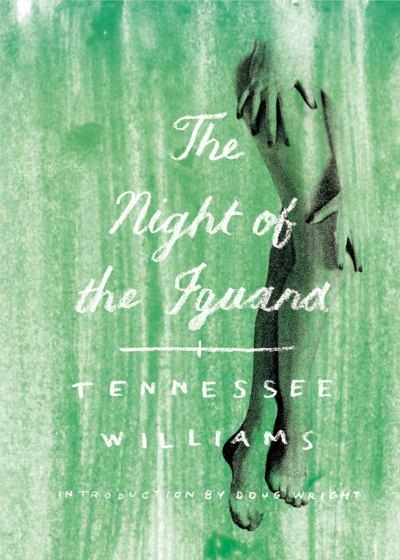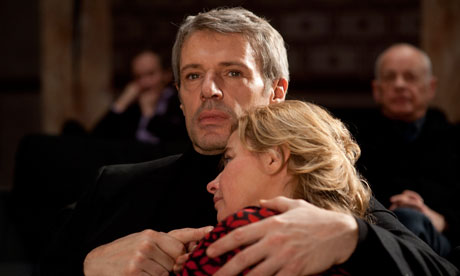 1. You Ain’t Seen Nothin’ Yet (dir. Alain Resnais)
1. You Ain’t Seen Nothin’ Yet (dir. Alain Resnais)
I suppose it should be no surprise that the wisest, most mature film of the year should come from perhaps the wisest, most mature living filmmaker. Now at 91, Alain Resnais has long ago earned the right to settle down and make whatever senile, esoteric film he wants, but instead he makes this remarkably perceptive film on the delicate interaction between life and art; individual dreams vs. a shared cultural heritage; and the fragility of time and memory (an oft repeated theme in Resnais’ work). Not only is this perhaps his best film in thirty years, it strikes this viewer as the work of an old magician showing his audience that he still has a few tricks left up his sleeve, and the hurried, impassioned work of a man trying to make a poignant final statement about life, death, love, and his art before time, that great equalizer, finally and inevitably catches up to him.
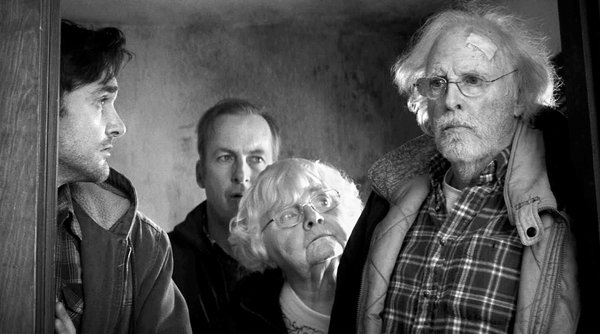 2. Nebraska (dir. Alexander Payne)
2. Nebraska (dir. Alexander Payne)
Following in the spirit of the great American road movies of the 1970’s (Five Easy Pieces, Harry & Tonto, even Paper Moon), Alexander Payne’s best film to date journey’s into the heritage, and consequently, legacy of a Midwestern family. Bruce Dern has been working his entire career towards this role which he inhabits with aplomb. Mistaken by some for condescension and use of Midwestern stereotypes (a sin for which Payne was regrettably guilty of in his previous, Hawaii set, The Descendants), Payne actually exhibits an almost Todd Solondz-like mastery of tone which reveals the essential compassion at the film’s core, as well as Payne’s deeply felt, personal understanding of the milieu. Note the subtle eye for detail in the characterization of June Squibb’s very Catholic, bawdy vulgarity vs. Bruce Dern’s pained, stoical Lutheranism.
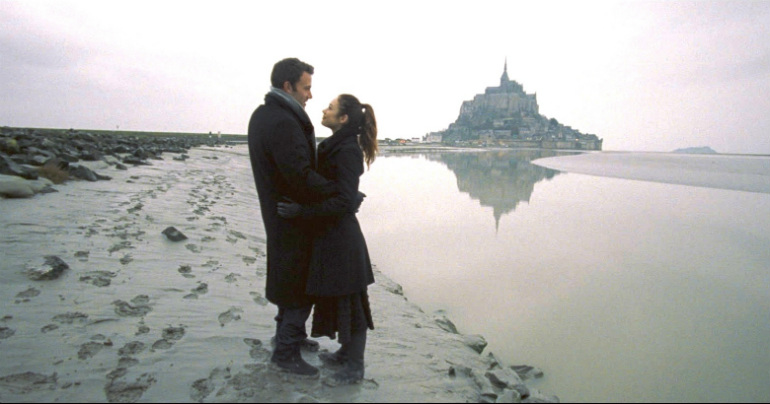 3. To The Wonder (dir. Terrence Malick)
3. To The Wonder (dir. Terrence Malick)
Seen by many as the forgettable stepchild, or B-side to Malick’s operatic and highly praised The Tree of Life, if anything this may be the superior of the two. Both less cosmic and more disciplined than it’s predecessor, To The Wonder is nonetheless a triumph of poetic and personal filmmaking. Rather than contrasting (or connecting) the triumphs and tribulations of a single family to the unimagined vastness of the cosmos, instead Malick equates love, the virility of nature, and the quest for spiritual identity with the search for God. At its best, his exalted visual style bestows a sense of holiness and reverence on even the most mundane of subjects. And, at it’s best, is the closest modern film has come to producing a cinematic act of prayer.
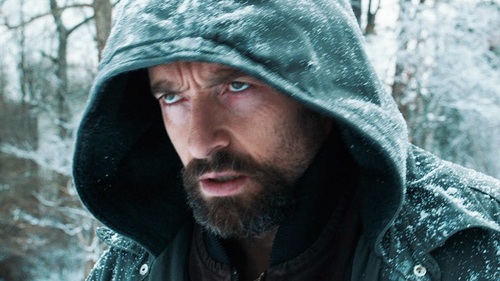 4. Prisoners (dir. Denis Villeneuve)
4. Prisoners (dir. Denis Villeneuve)
If there was one film this year that caught me off guard and proved to be unexpectedly compelling, it would be Denis Villeneuve’s Prisoners. This intense, slow building, morally complex thriller turns the “revenge drama” sub-genre on its head by exploring its characters in philosophical and spiritual terms rather than using them as cynical and facile political allegories. Like Mystic River, this film suggests the seemingly conflicting natures of justice and faith, yet Hugh Jackman’s everyman rage proves far more salient and pitiable than Sean Penn’s actory histrionics.
 5. Like Someone In Love (dir. Abbas Kiarostami)
5. Like Someone In Love (dir. Abbas Kiarostami)
In his two most recent outings, Iranian master filmmaker Abbas Kiarostami has turned his lens from his native land to two very different, almost disparate cultures: Italy (Certified Copy) and now Japan. Like To the Wonder, Kiarostami’s latest seems to have suffered critically by being the follow up to a highly praised predecessor. Rather than a step back in filmmaking, if anything the critical confusion seems to rest in a sense of cultural dislocation: the warm, inviting Italian countryside of Certified Copy vs. the cold, impersonal Tokyo metropolis. The difference between the two films is almost an East vs. West dichotomy. And that’s the point. It’s the sense of cultural disconnectedness (a theme often employed by Ozu) of the two principal characters, and that need for understanding, connection, and human warmth that they both seem to have lost (or possibly abandoned). Kiarostami’s technique may be intentionally distancing at times, yet his effect is poignant, and in the film’s final moments, quite surprising.
 6. The World’s End (dir. Edgar Wright)
6. The World’s End (dir. Edgar Wright)
Film by film, Edgar Wright is proving himself to be the master comic filmmaker of our era. With The World’s End, Wright achieves what Tarantino seldom (or never) has: the ability to digest familiar genre tropes and regurgitate them as intensely personal reflection and even film art. The film’s dramatic thrust–reconciling nostalgia and illusions of past triumph with the reality of a world that you need more than it needs you–is so well and movingly captured that it takes a mid-film twist into 1950’s sci-fi territory in order to contain it. Despite the emotional immaturity of some of the characters, as a filmmaker, Wright proves to be both insightful and compassionate, while the film succeeds simultaneously as a buddy comedy, reunion drama, political satire, sci-fi/horror film, and parody. No easy task, but he does it.
 7. In The House (dir. François Ozon)
7. In The House (dir. François Ozon)
François Ozon has developed as a filmmaker in recent years. From the unsettling, erotic thrillers of his early career to the more humane domestic satirist he has become, Ozon has never lost his skill for balancing the beautiful with the sinister. Ozon slyly attacks bourgeois institutions such as contemporary art, literature, smug intellectualism, and middle class home life with a film that essentially exposes how contemporary culture has come to define itself by these things rather than the other way around. In fact, the approach of In The House is essentially surrealist and would feel at home in Luis Buñuel’s oeuvre right in between The Exterminating Angel and The Discreet Charm of the Bourgeoisie. Though, in reality, it’s most closely related to Pasolini’s bizzare-o satire, Teorema. Thankfully, however, Ozon is less alienating and more compassionate than his Italian counterpart.
 8. The We and the I (dir. Michel Gondry)
8. The We and the I (dir. Michel Gondry)
If nothing else, music video wunderkind Michel Gondry’s latest experiment triumphs for use of the most philosophically and politically prescient title in years. Here Gondry utilizes the device misused by Richard Linklater in Dazed and Confused, by charting the longings and insecurities of a diverse group of inner city Bronx high school students on a bus ride home after the last day of school. Where Linklater attempted a more cerebral, and ultimately condescending tone, Gondry’s inclusiveness and emotional honesty charts the profundity of adolescent moral development. The resulting observation, which discovers the process of forming one’s individuality in the context of social interaction and the greater culture at large, is as vibrant and natural as any film you will see.
 9. Bullet To The Head (dir. Walter Hill)
9. Bullet To The Head (dir. Walter Hill)
Sylvester Stallone cements his return to action film stardom in this, the best of his now several “comeback” films. Best because at last he hitches himself to Walter Hill, a director who understands the fundamental dynamics of action films better than virtually any other living director. Hill, in comeback mode himself, a director who studied at the schools of masters such as Howard Hawks, John Huston, and even Jean-Pierre Melville shows an emphasis on moral reckoning and codes of ethics over mindless violence and CGI bombast. For Hill, action is character (when properly contextualized) and the line, “Sometimes you have to abandon your principals and do the right thing,” perfectly captures that professional ethos. For Stallone and Hill, two dogged veterans of the action genre, violence proves not to be merely a contrivance to advance plot, but an illustration of human weakness.
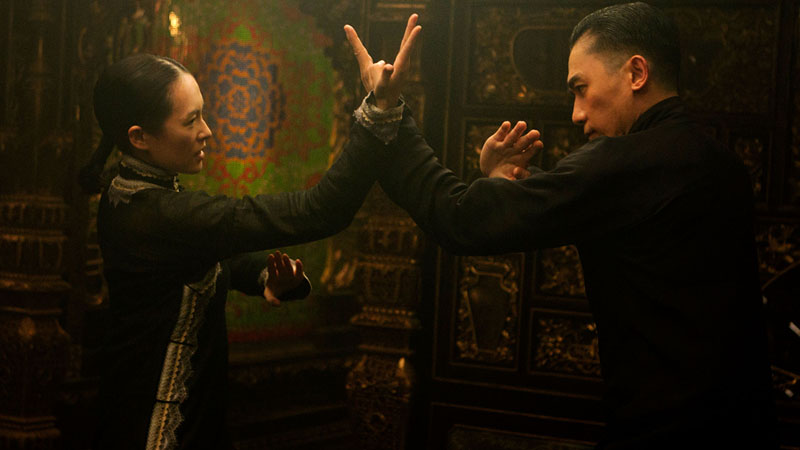 10. The Grandmaster (dir. Wong Kar-Wai)
10. The Grandmaster (dir. Wong Kar-Wai)
If Walter Hill is one of the masters of the action film as it has developed in the West, then Wong Kar-Wai (along with Zhang Yimou) is the master of the action film as it has developed in the East, even though neither Wong nor Zhang is exclusively tied to the action genre. In The Grandmaster, action and choreography become the primary tools of emotional expression in a film that seamlessly combines national history with cultural myth. The visage of the two leads (Wong regular, Tony Leung, and the always gorgeous, Ziyi Zhang) promotes inscrutable mystery and emotional distance, yet when in combat there is an explosion of passion, as if they can only truly express themselves in the terms of their art, even if it is a martial one. Though this may not be Wong’s best film (that distinction belongs to the underrated 2046), it exhibits many of his most potent themes, including the tragic tenuousness of time and cultural memory (a theme which, to bring this list full circle, he learned from Alain Resnais).
Honorable Mention:
Caesar Must Die (Paolo and Vittorio Taviani), Passion (Brian De Palma), Leviathan (Lucien Castaing-Taylor and Verena Paravel), Pain & Gain (Michael Bay), 42 (Brian Helgeland), American Hustle (David O. Russell), Mud (Jeff Nichols), Byzantium (Neil Jordan), Berberian Sound Studio (Peter Strickland), The Lords of Salem (Rob Zombie)
The Forgettable and the Overrated:
Before Midnight, The Bling Ring, Blue Jasmine, Gravity, Her, Inside Llewyn Davis, Prince Avalanche, Spring Breakers, The Wolf of Wall Street

